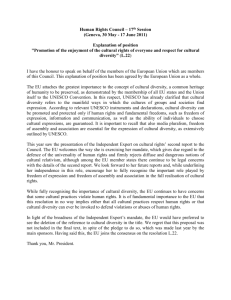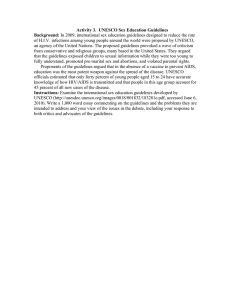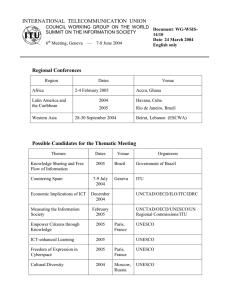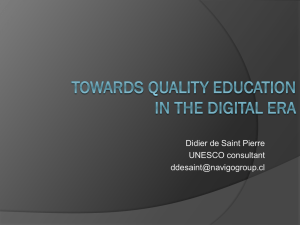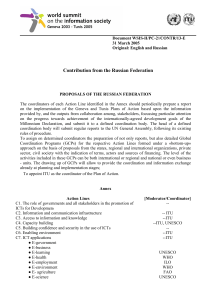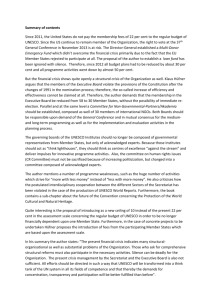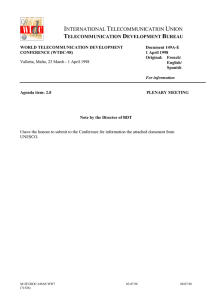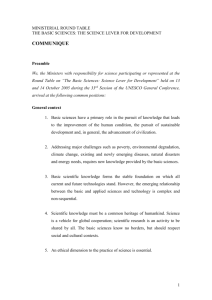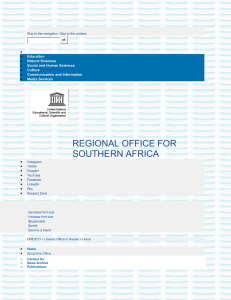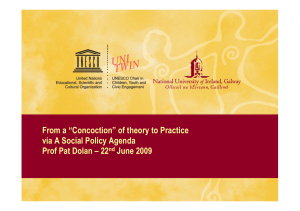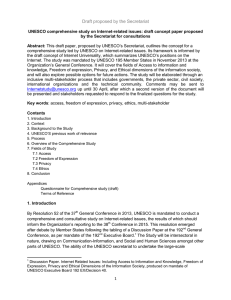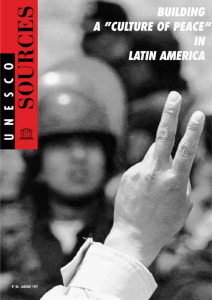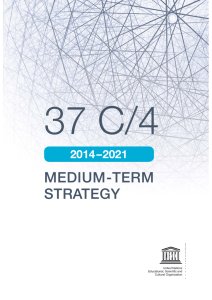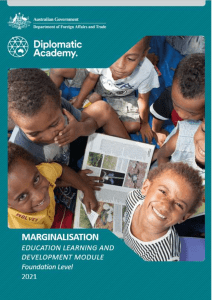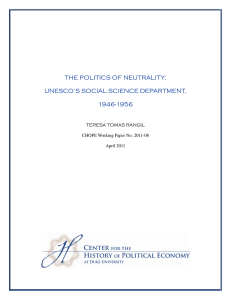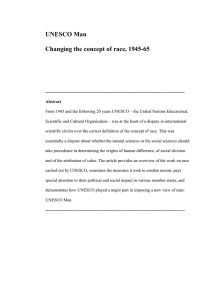Joint Message of the Director-General of UNESCO and Secretary-General of International Telecommunication Union
advertisement
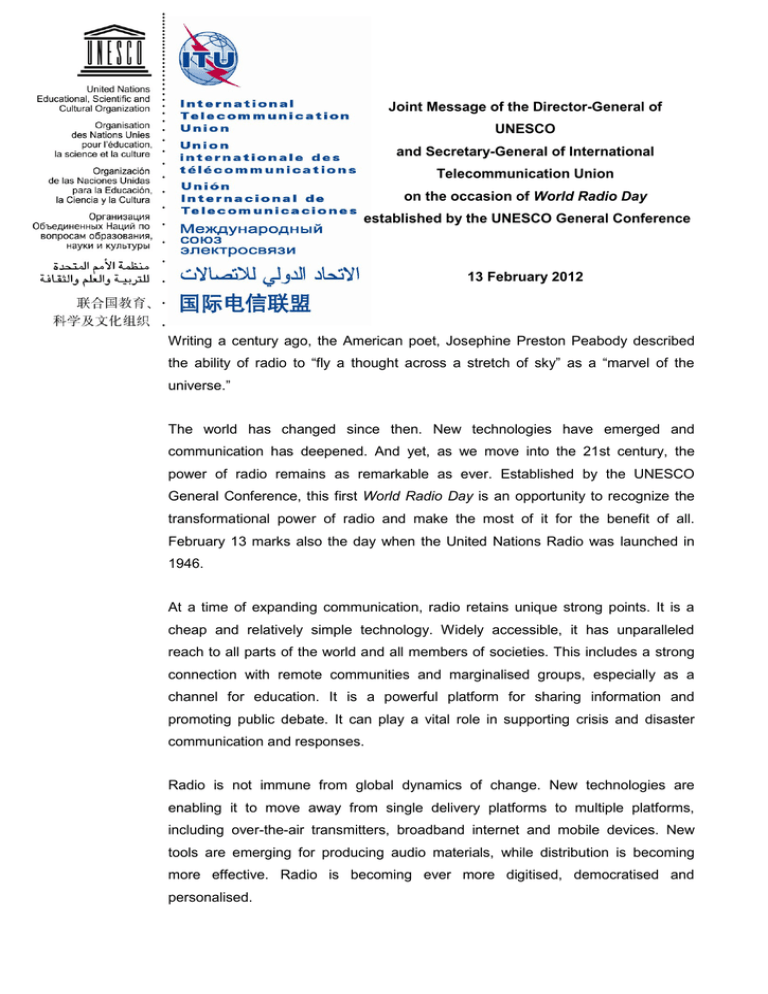
Joint Message of the Director-General of UNESCO and Secretary-General of International Telecommunication Union on the occasion of World Radio Day established by the UNESCO General Conference 13 February 2012 Writing a century ago, the American poet, Josephine Preston Peabody described the ability of radio to “fly a thought across a stretch of sky” as a “marvel of the universe.” The world has changed since then. New technologies have emerged and communication has deepened. And yet, as we move into the 21st century, the power of radio remains as remarkable as ever. Established by the UNESCO General Conference, this first World Radio Day is an opportunity to recognize the transformational power of radio and make the most of it for the benefit of all. February 13 marks also the day when the United Nations Radio was launched in 1946. At a time of expanding communication, radio retains unique strong points. It is a cheap and relatively simple technology. Widely accessible, it has unparalleled reach to all parts of the world and all members of societies. This includes a strong connection with remote communities and marginalised groups, especially as a channel for education. It is a powerful platform for sharing information and promoting public debate. It can play a vital role in supporting crisis and disaster communication and responses. Radio is not immune from global dynamics of change. New technologies are enabling it to move away from single delivery platforms to multiple platforms, including over-the-air transmitters, broadband internet and mobile devices. New tools are emerging for producing audio materials, while distribution is becoming more effective. Radio is becoming ever more digitised, democratised and personalised. In a world of change, we must strengthen radio’s role in promoting human rights and fundamental freedoms, especially freedom of expression. This goal guides UNESCO’s commitment to bolster communication between all societies for the purpose of deepening mutual understanding through the “free flow of ideas by word and image.” UNESCO works to ensure that radio is a tool for peace -- sharing knowledge and information about the diversity of cultures, encouraging a pluralism of voices and widening access to knowledge. To this end, UNESCO supports free, independent and pluralistic media through all transmission platforms -- including community radio, “radio-in-a-box” start-up kits, shortwave and satellite radio use. UNESCO trains personnel, with a focus on women and marginalised groups, and helps to set global and national policy standards -- through its Media Development Indicators and Public Service Broadcasting seminars. Supporting freedom of expression is the thread running through all of UNESCO’s activities. With its mandate to ‘Connect the World,’ the International Telecommunication Union is pleased to associate itself with this World Radio Day. ITU is committed to strengthening radio as the world’s most accessible, pervasive and multilingual communication technology and to ensuring it continues to be an immensely powerful tool for delivering social and economic benefits, especially for the world’s rural and most remote communities. Actively involved in promoting the benefits of radio since its first days, ITU is proud to act as the steward of the radiofrequency spectrum that makes global radio broadcasting possible. On this basis, ITU works every day to ensure that the benefits of radio will remain as strong as ever in the coming decades. In a world changing quickly, we must make the most of radio’s ability to connect people and societies, to share knowledge and information and to strengthen understanding. This World Radio Day is a moment to recognize the marvel of radio and to harness its power for the benefit of all. Irina Bokova Hamadoun Touré
